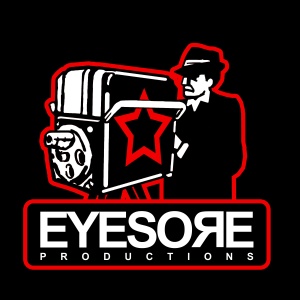After all this jabbering about sustainable economy — buy local, support urban farming, rediscover craft industry — a group is putting money where the big ideas are. They have created a local currency — The B-note to be more specific, legal tender that functions in same way the good ole greenback works, passing bucks from one hand to the next, except for one thing. The B-note stays in B-More Not true with the dollar, which is at the whim of the big spender who could buy a beer for the house at the corner bar or plunk some cash on an overpriced pair of sunglasses guaranteeing that the money zips out to some corporate headquarters.
“The whole purpose of this is to benefit the small independent businesses, to get people thinking about where they spend their money,” said Jeff Dicken, a member of Baltimore Green Currency Association, the group behind the currency project.
The idea was in the making for a year, as the group planned the distribution, designed the 1 and 5 B notes and raised about $8,000 to print 100,000 Bs of tender. The B-note hit the streets three weeks ago and is now being accepted by 64 business citywide all listed on Baltimoregreencurrency.com. The acceptance is far larger than the currency architects imagined. Dicken said he had hoped that maybe they’d recruit 30 to 50 businesses in a year’s time. Now they’re looking to cap 100 business by the end of the summer.
The local currency movement basically enforces the buy local cred. That is the B-note is worthless (so far) unless spent in the community in Baltimore, forcing the consumer to think or search out where they can plunk down their B-Buck.
Damien Nichols, one of the organizers, found that explaining the mechanism is behind the currency can be difficult, but Baltimore with its tight network of indigenous business understands the power of buying local.
“You’re surround the community with a fence and all the energy and the money stays here,” said Nichols.
The idea is that people can exchange dollars for B-Notes at an exchange rate of 90 cents on a dollar or ten dollars for 11 B-notes. So the purchase incentive is built in. Secondly the Baltimore Green Currency worked to set up a lateral economy where businesses buy goods and services from each other such as a store owner can get graphic from a designer, who have agreed to accept the notes, rather than just have a group of stores, a shoping center. Whats more no one stands to profit from the currency. There is no cut. Baltimore Green Currency as an organization raised the money as a way of responding to the Recession and the strain placed on local businesses.
“When you go and buy something from Walmart, all that money leaves town,” said Michael Tew, an organizer with Green Currency.
The money collected at exchance centers or what is formally known as Cambios ( Little Shop of Hardware, Capital Mac in Fells Point and Murray Blum in Hampden ) is put in a bank account backing the currency, according to the organizers. The idea, according to association members, is that the B-notes stay in use much like the dollar and so far few people have been cashing in Bs back to dollars.
Rooted in the buy local, grassroots, sustainable movement, the B-note made its debut along the independent heavy neighborhood of Hampden and has since spread throughout the city.
The Baltimore Note, artfully done with the Oriole Bird on Side A and Frederick Douglas on the other for the 1 B, and The Raven with the required portrait of Poe on the other for the Fiver follows the lead of other communities, There’s the Ithaca Hours or BerkShares in Berkshire, Mass or The Plenty in Pittsboro or Brixton Pound in London and of course Seatle, home of the World Bank Riots, came out with Local-Bucks. And now Baltimore Green Currency stands ready about the 100,000 in cash notes, 6,000 on the streets.
You get the idea, progressives playing with money. But the economics benefits is very tangible and cross-cuts the community.
“It gives you a real way to buy local and Baltimore as a community takes pride in that,” said Nichols.
Still adopting a new currency was a bit much for some businesses owners to handle. One owner laughed at the idea that someone came into her store with the idea of printing their own money.
“I’m still coming around to it,” she said.
Others like Mickey Fried, owner of Belle Hardware in Bolton Hill, locked on to the political ramifications of creating local money. When asked to accept the currency he considered what would happen if he was inundated with the B-note. Would he be able to use it and of course there’s overall concern: What if the B-note fails.?
“It’s a risk because if it fall flat on its face, then frankly we’ve basically given the stuff away,” he said.
But Fried also had faith in Baltimore’s tight network of small business and likes striking back at the ever expanding move to bring in corporate stores where the profits leave the city for corporate headquarters.
“There are lot of people who have put a lot of emphasis into what a slip of paper (dollar) is worth, but I don’t think they thought much about the circulation. If you don’t think about w here you spend your money, that money isn’t staying in your community.”
Jokingly called hippie money, the B-note has captured the attention of the usual suspects, small businesses people already rooted in social consciousness that these days has been translated in that over-used word – “Sustainability.”.
But the real challenge is for the B-note to translate into the regular sector, where money exchange hands in crumpled bills in quick pace, basically a place like a famous deli on Lombard Street or a popular movie house on Charles Street or how about a baseball stadium off 395. The day the B-note gets in the hands of the apathetic spenders, the greater the change. The organizers know this and are pushing on with goals like having the city accept the B-note. Last week Mayor Stephanie Rawlings-Blake happily posed with a B-note. A sign of the future or bandwagon move by a politician.








